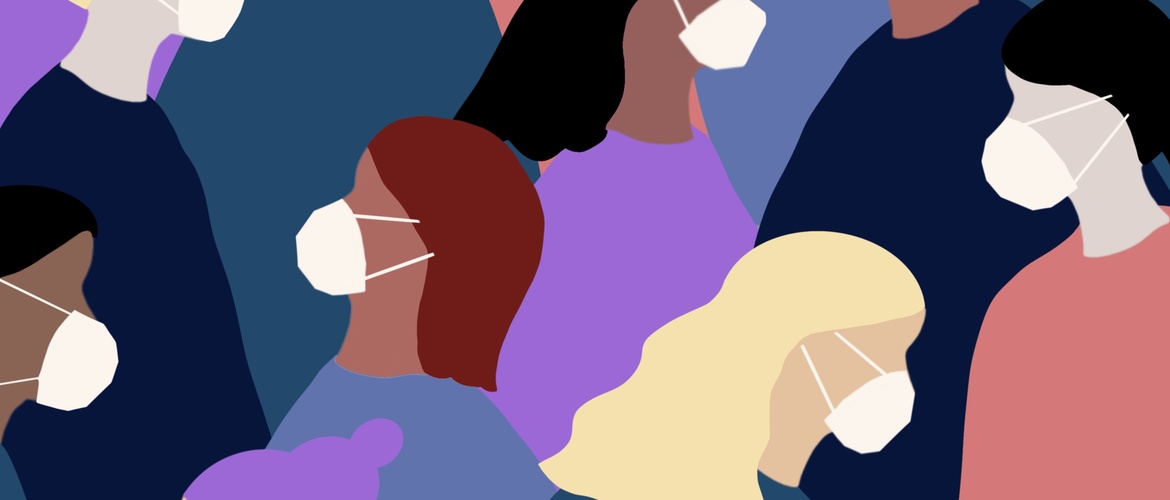
Välj en kanal
Kolla in de olika Progress in Mind-kanalerna.

Progress in Mind

For people with mental illness or disabling neurological conditions, restrictions imposed to counter Covid-19 will worsen problems already associated with a northern hemisphere winter. The social isolation and anxiety caused by the pandemic also have worldwide implications for mental health.
People with Alzheimer's disease (AD) and related dementias are at greater risk of dying during the winter than at other seasons, and their excess mortality eclipses that due to cardiovascular disease.1 A failure of physiological response to cold, impaired perception of it, and reduced ability to adjust heating have all been implicated.
This yearly excess in deaths is likely to amplify the disproportionately large Covid-19 mortality already seen among people with dementia.2 Lack of contact with family -- required to combat spread of the infection in care homes – is thought to accelerate dementia progression, further increasing the burden for those with the disease.
Winter worsens cognition and motor symptoms
Lockdown has negative impact on PD
Winter is associated with a significant decrease in cognitive capacity in older adults with dementia,3 and also a worsening of non-motor symptoms in Parkinson’s disease (PD).4 Respiratory muscle rigidity, impaired cough reflex and dyspnea make people with advanced PD particularly vulnerable to Covid-19.5 It is also becoming clear that lockdown itself has a negative impact.
In an Italian study of 74 people with PD, 60% had experienced a worsening of their condition during isolation, mostly due to reduced physical activity.6 This finding echoes that of a large UK survey: more than a third of respondents reported worse slowness of movement, stiffness or fatigue, and more than a quarter cited increased tremor, anxiety or sleep problems.7
We face a seasonally-exacerbated conjunction of pandemics: dementia, Covid, and mental health
The survey also found a rise in stress. For those with advanced PD, this related particularly to ensuring access to food.
Pandemic undermines mental health
In an early 2020 survey of Covid-19’s effect on wellbeing in China, 16.5% reported moderate to severe depression and 28.8% moderate to severe anxiety.8 In a poll by the American Psychiatric Association, more than a third of respondents said the virus was seriously impacting their mental health.9
Brain-related conditions increase vulnerability to infection
For people with pre-existing problems, the isolation and anxiety caused by the pandemic are likely to exacerbate depression – itself made worse by winter [link to relevant article in this set] -- and increase risk of suicide.10 Those affected may be less inclined to seek help because they fear infection through face-to-face contact and expect on-line services to be understaffed and overwhelmed.10
People with serious mental ill-health are likely to be more vulnerable than others to Covid-19 itself: physical comorbidities are relatively common, stigma may delay access to healthcare, and cognitive impairment can undermine efforts to prevent infection.11
For people with schizophrenia, sudden shifts in reality such as shuttered shops and streets emptied of people – along with the prevailing sense of threat – may bring unwelcome reminders of relapse.12
Our correspondent’s highlights from the symposium are meant as a fair representation of the scientific content presented. The views and opinions expressed on this page do not necessarily reflect those of Lundbeck.
1. Liddella C et al Energy Research and Social Science 11;2016:256-62
2. https://www.alz.co.uk/media/010920
3. Lim ASP et al. PLOS Medicine 2018;15: DOI: 10.1371/journal.pmed.1002647
4. van Wamelen DJ et al. Parkinsonism Relat Disord 2019;63:73-6.
5. Antonini A et al. Mov Disord 2020 May 28:10.1002/mds.28104
6. Schirinzi T et al. Movement Disorders 2020;7:797-802
7. https://medicalxpress.com/news/2020-07-people-parkinson-experienced-symptoms-lockdown.html
8. Wang C, et al. Int J Environ Res and Public Health 2020;17:729
9. psychiatry.org/newsroom/news-releases/new-poll-covid-19-impacting-mental-well-being-americans-feeling-anxious-especially-for-loved-ones-older-adults-are-less-anxious
10. Gunnell D et al. Lancet Psychiatry 2020;7:468-71
11. Yao H, et al. Lancet Psychiatry 2020; April e21
12. https://slate.com/human-interest/2020/03/schizophrenia-coronavirus-pandemic-messing-with-my-sense-of-reality.html [The writer uses a pseudonym.]